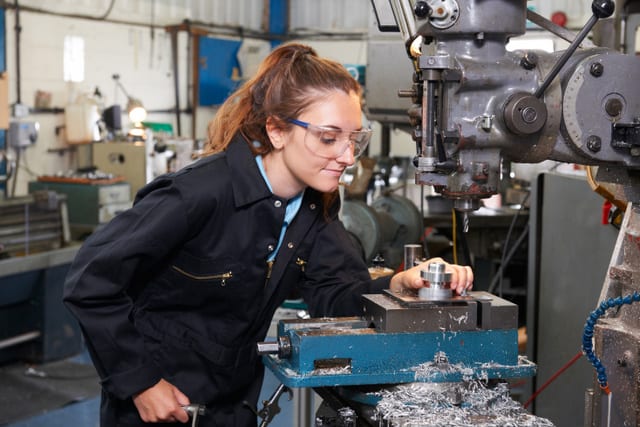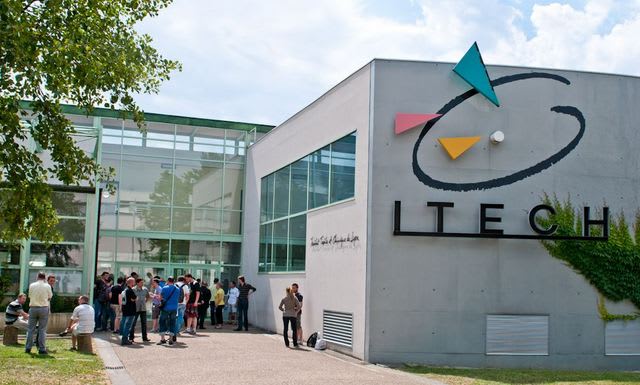Four Reasons To Study Engineering in France
When you think of countries with top engineering programs, China, the US and Switzerland may be the first to come to mind. However, plenty of other nations offer premiere engineering opportunities with allures of their own. One destination topping the list for engineers in search of an international education? France. Let’s take a closer look at four top reasons to consider France for your engineering studies.
- Study Abroad

When you think of countries with top engineering programs, China, the US and Switzerland may be the first to come to mind. However, plenty of other nations offer premiere engineering opportunities with allures of their own. One destination topping the list for engineers in search of an international education? France. Let’s take a closer look at four top reasons to consider France for your engineering studies.
Read more about studying Engineering in France.
1. Engineering Degrees Are Highly Esteemed

French engineering programs are well-known for their rigorous curricula aimed at positioning graduates for successful careers following graduation. France’s selective Grandes Ecoles d’Ingénieur fuse advanced theoretical concepts with practical applications, such as small workshop sessions and paid internships. They also integrate business training, foreign language study, and communication skills, all teaching Diplôme d’Ingénieur recipients to deliver creative solutions to some of today's most complex challenges.
Standing behind today’s French engineering degrees is The Engineering Title Committee (CTI), the monitoring body tasked with ensuring the ongoing excellence of the country’s engineering education system.
2. Learn In a Culture of Ages-Old Engineering Innovation

Need more proof of the strength of French engineering programs and the capabilities of their grads? Just take a quick look at the country’s legacy of engineering innovation, starting with the TGV (Train à Grande Vitesse or "high-speed train"). World record holder for speed, the TGV is considered to be a technological marvel for its combination of performance, comfort, and commitment to eco-mobility.
And the TGV is hardly alone. The 17th century, 150-mile Canal du Midi which spans from Toulouse to the port of Sète in the Mediterranean is so extraordinary in both vision and execution that it’s earned Unesco World Heritage Site status.
And of course no discussion of feats of European engineering is complete without mention of the Eurotunnel. A joint project of France and the UK, the Channel Tunnel took more than 13,000 workers and five years to complete, and has since been declared to be one of the seven wonders of the modern world.
What do each of these have in common aside from their impressive engineering schemes? They were considered unthinkable until French engineers put their minds to the task. In fact, France recently topped all other European countries for innovation based on Thomson-Reuters’ roundup of the “Top 100 Global Innovators.” With the world facing so many challenges ahead, these past accomplishments speak to the potential of French-educated engineers to make a profound difference in society.
3. The French Language Adds Value

While the importance of knowing English is widely touted, the value of bilingualism is often understated. But as globalization continues to break down conventional barriers to communication, knowledge of a second or more language adds irrefutable value.
In addition to enhancing a student’s ability to communicate, studying French also affords students otherwise unattainable access to understanding French culture and context. These cross-cultural capabilities serve graduates well -- both when working alongside other French speakers as well as when communicating with other international students, as well.
In short, adaptability is a “must-have” attribute in today’s complex economic landscape, and amplifying your ability to communicate goes a long way.
4. It IS France, After All

Mere mention of the word “France” makes most people swoon. While engineering programs are indeed demanding, you won’t spend all your time studying. When you’re not hitting the books, France offers an abundance of unforgettable things to see and do and taste and discover.
And while Paris may get all the buzz, there are plenty of other phenomenal French cities for international students, such as the European metropolis of Lyon. A major technological, industrial and economic hub, Lyon plays host to an impressive network of engineering schools.
Take the Institut Polytechnique de Lyon, for example. This coalition of 4 French "Grandes Ecoles" of Engineering, including CPE Lyon, ECAM Lyon, ISARA Lyon, and ITECH Lyon, draws students from all over France and around the globe. Each offers different areas of specialization under the umbrella of the Université de Lyon’s research and higher educational center.
France is known for many things -- from breathtaking art to fabulous food. It’s not a surprise that this prominent country also shines in other areas as well, such as engineering. Prospective engineers in search of high-quality international engineering educational opportunities will find that and so much more in this legendary, romantic and innovative country.

Joanna Hughes
Author
Joanna worked in higher education administration for many years at a leading research institution before becoming a full-time freelance writer. She lives in the beautiful White Mountains region of New Hampshire with her family.


